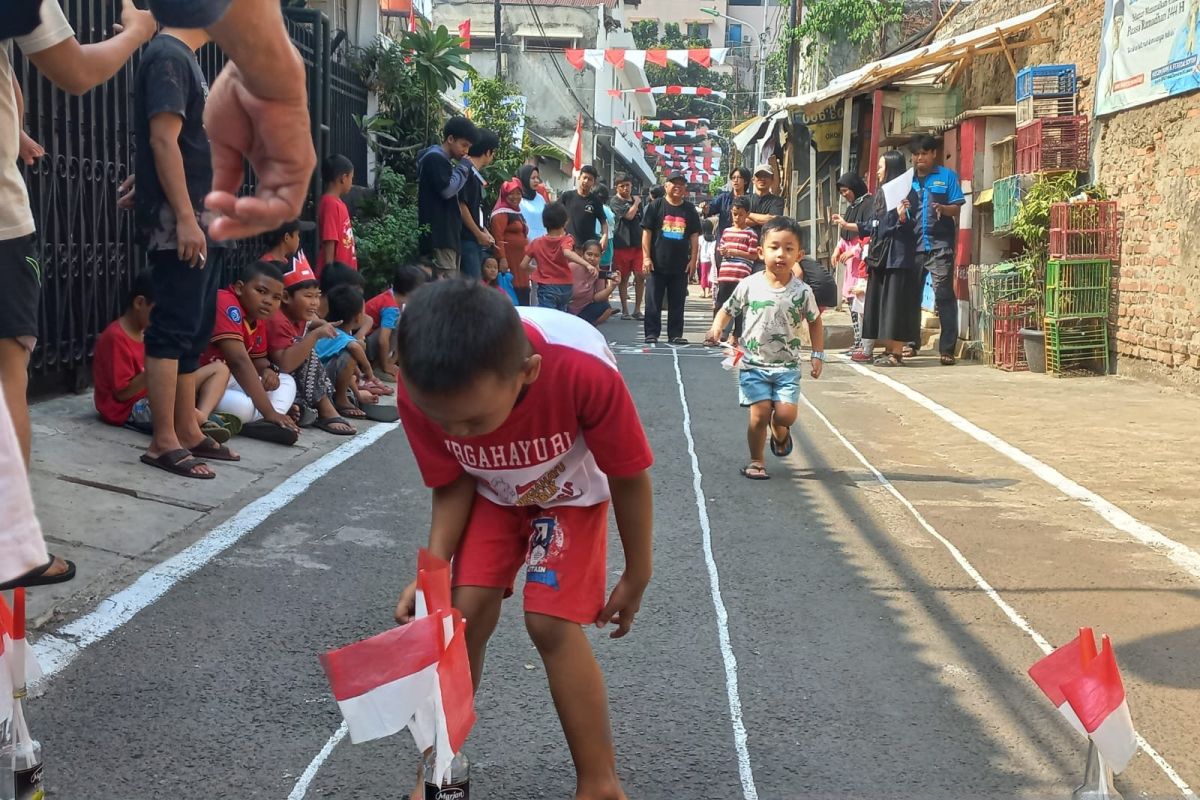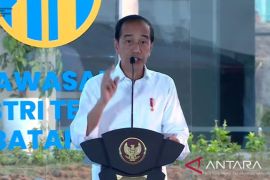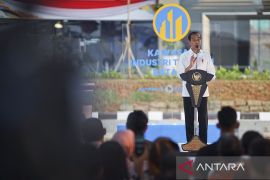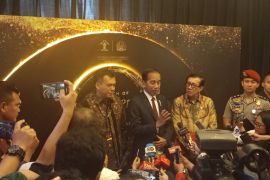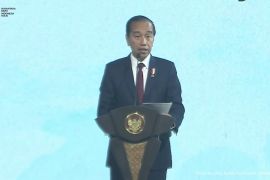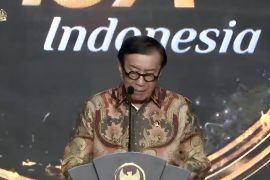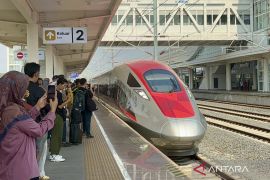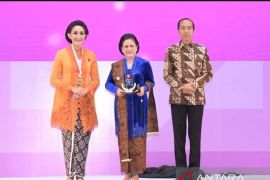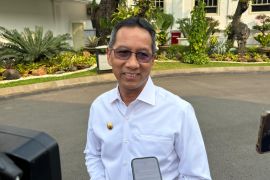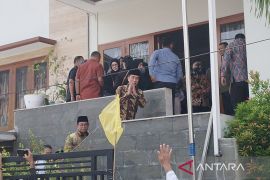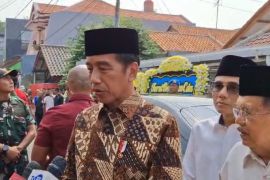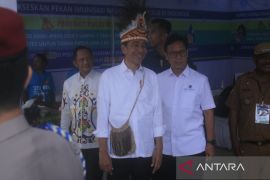Jokowi was candid while saying that being the president is not as easy as it appears, as the head of state has a huge responsibility since the nation faces an array of problems that need to be resolved.
The president also remarked that due to social media, he is aware that some people look down on him and insult him while some call him names and so on, as well as regard him as someone, who does not know anything.
However, Jokowi accepts it all and does not feel sad about it. However, the one thing that saddens him is how the nation’s culture of courtesy appears to be disappearing.
“Freedom and democracy are used to vent malice and slander. Pollution in this cultural area seriously hurts the character of the Indonesian nation,” the president stated while also adding that he knew that not all Indonesian people are like that.
In fact, those insults and slander are making the society realize that they must unite to protect the morality of public space, so that Indonesia can keep forging ahead to carry out the nation’s transformation to become “Indonesia Maju” and achieve Golden Indonesia 2045.
Jokowi affirmed that Indonesia has a great opportunity and strategy to rank among the top five global economic powers and to achieve the vision of Golden Indonesia 2045. However, to achieve the Golden Indonesia 2045 vision, one of the important factors that this nation must have is good-quality human resources.
Having good-quality human resources alone will not suffice, as they also need to have morality. A saying “talent without humility is a waste” best describes this.
Demographic dividend
Indonesia has a demographic dividend that will reach its peak in the 2030s, when some 68 percent of the residents fall in the productive age group, and it will help the nation to achieve “Indonesia Maju” and Golden Indonesia 2045.
However, it is not only the figure of demography that should be counted as a factor but also the quality of the demography itself. It will be a tough task to achieve Golden Indonesia 2045 based solely on the figure of demography itself.
The quality of human resources must also be counted as a factor, so that Indonesia will not only become advanced in terms of the economy but also with its human resources. Thus, Indonesia is starting to take steps to ensure that it has good-quality human resources, one of which is through reducing stunting.
Indonesia has succeeded in reducing the stunting rate to 21.6 percent in 2022 and increasing the Human Development Index to 72.9 in 2022 as well as increasing the Gender Empowerment Index to 76.5 in 2022.
The government has also prepared a social protection budget of Rp3,212 trillion and the money will be channeled for health, that is the Indonesia Health Card; education, that is the Indonesia Smart Card; and for elderly, people with disabilities, and vulnerable groups, such as by providing training for people to enter the workforce at the Vocational Training Center and Pre-Employment Card Program.
In terms of education, apart from providing social protection for children through the Indonesia Smart Card (KIP), the government should also improve the quality and welfare of teachers.
Teachers are one of the vanguards in teaching and educating children, who will later take the baton from the previous generation to continue Indonesia’s journey in the future to achieve the Golden Indonesia 2045 vision, among others.
Golden Indonesia 2045
Indonesia is equipped with various strengths to be reckoned with. Firstly, Indonesia has the fourth-largest population in the world, with a workforce of 146.6 million. Expansion of employment is certainly an important focus.
This is where the roles of the green economy sector and downstreaming present an opportunity for Indonesia to achieve progress, as it has abundant natural resources, including minerals, plantation products, marine products, as well as new and renewable energy resources.
Indonesia has an abundance of natural resources, with an enormous wealth of mineral reserves, where it ranks first for nickel reserves, 21 million MT; ranks sixth for bauxite, one billion MT; ranks seventh for copper, 24 million MT; and ranks first for tin, 0.8 million MT.
Jokowi believes that merely owning rich natural resources is not sufficient, as it will make Indonesia a lazy nation that only sells the raw materials of its wealth. Indonesia must become a country that is also able to process its resources, be able to provide added value, and bring prosperity to its people.
Indonesia can bring prosperity to its people through downstreaming that entails transfer of technology, utilization of new and renewable energy resources, and minimization of environmental impact. Since then, the Government of Indonesia has necessitated mining companies to build seedbeds to reforest post-mining land.
Moreover, the downstreaming concept applied by Indonesia is not only limited to the downstreaming of mineral commodities but also non-mineral commodities, such as palm oil, coconut, and seaweed, and other potential commodities that optimize local content and partner with MSME farmers and fishermen, so that the people can feel the benefits immediately.
Another factor is that the strategic location of Indonesia’s territory is profitable in international trade due to which it is important to have international trust. Indonesia’s credibility will be acknowledged more, and its sovereignty will be respected more. Indonesia’s voice will be heard more that will later make it easier for the country to negotiate.
The momentum of Indonesia’s Presidency in the G20, Indonesia’s Chair in ASEAN, and Indonesia’s consistency in upholding human rights and equality, as well as its success in facing the world crisis in the last three years, has boosted and placed it back on the world map and in the midst of world conditions that are turbulent due to differences.
“Indonesia, with its Pancasila, with its diversity of harmony, with its democratic principles, is able to present a space for dialogue, able to become a meeting point, and bridge the differences that exist,” Jokowi affirmed.
To ensure that all those strengths can help Indonesia to achieve its golden era, all elements of the nation -- ministries, institutions, religious leaders, humanists, scholars, academics, health workers, press, teachers, politicians, army and police, and all levels of society -- must work together.
Indonesia has it all, as it is rich in natural resources, has the right climate to grow crops, is strategically located between the Pacific Ocean and the Indian Ocean, and has the fourth-largest population in the world.
It is up to Indonesia whether it unites and utilizes all its strengths to achieve the goal and gain greater acknowledgment on the international stage or just be divided and sit around ignoring everything.
Like Jokowi said, “It’s just a matter of whether we want to focus our energy on moving forward or waste our energy on things that are unproductive and divisive. Even the ones that make us take a step back.”
Now, a strong foundation has been created, and witnessing the commemoration of the 78th anniversary of Indonesia's Independence, especially at the State Palace, reflects that Indonesia is ready to take another step.
Garuda has finally spread its wings and is ready to fly.
Related news: National birth control efforts are already on track: BKKBN
Related news: National Children's Day and the challenge to overcome stunting
Editor: Rahmad Nasution
Copyright © ANTARA 2023
